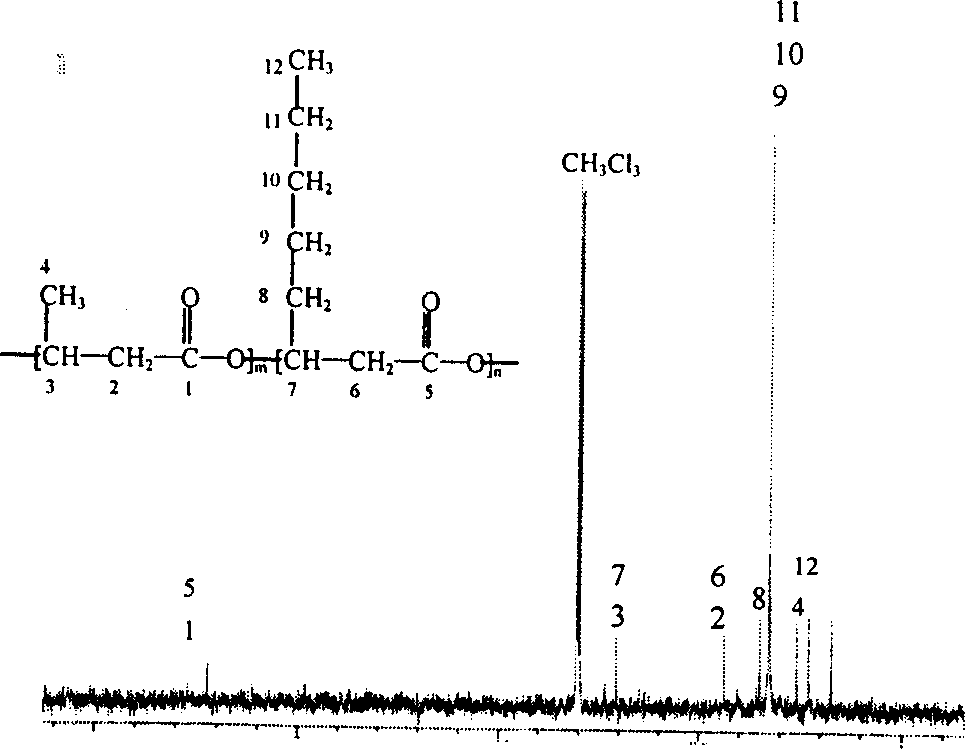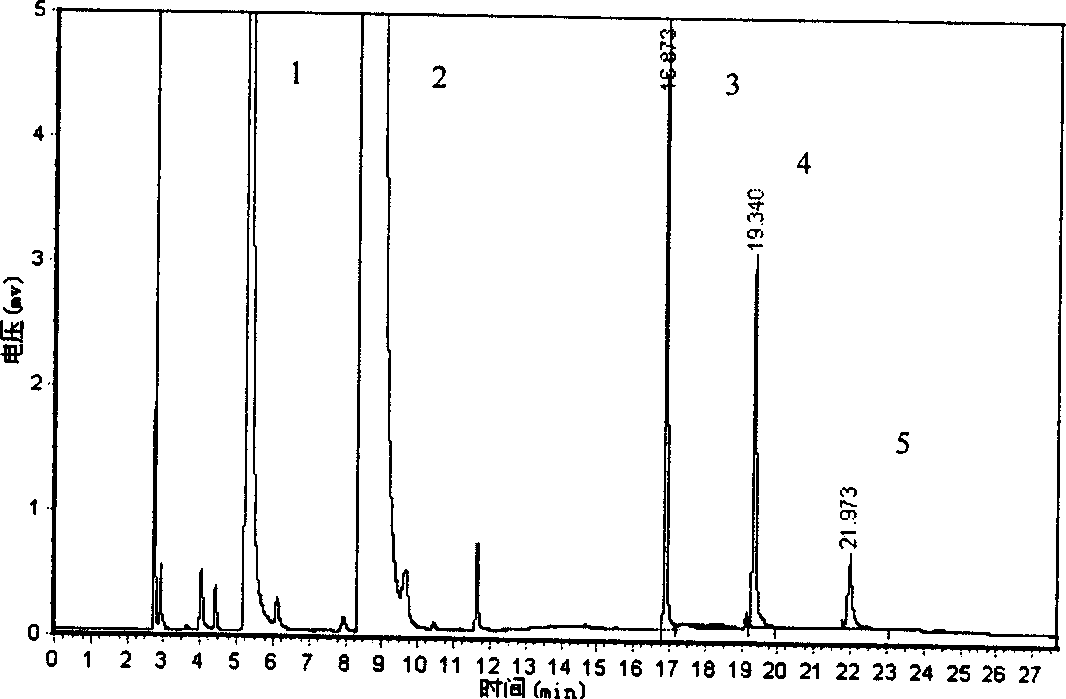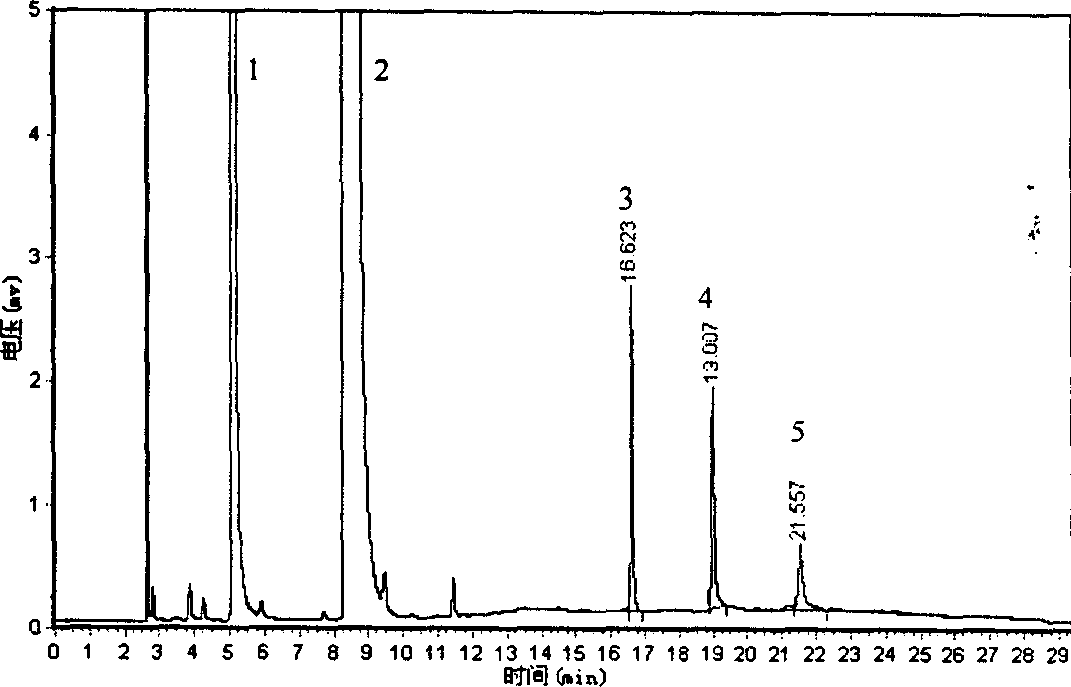Hydroxy alkanoic acid polymer and its producing method
A technology of hydroxyalkanoic acid and production method, applied in bacteria, fermentation and other directions, can solve the problems of increasing production cost, increasing the difficulty of product extraction by PHA, and high price
- Summary
- Abstract
- Description
- Claims
- Application Information
AI Technical Summary
Problems solved by technology
Method used
Image
Examples
example 1
[0072] Example 1 takes glucose as the fermentative production of carbon source synthesis P (HBHO)
[0073] (1) Inclined plane and shake flask seed culture
[0074] Inoculate the preserved S. fredii strain on the slant medium, activate it twice in an incubator at 30°C, transfer it to a shake flask containing a shake flask seed medium, and activate it twice again, and wait for the next stage of shaking Flask cultured for 14 hours, when the bacterial cell concentration reached 1.53g stem cells / L (OD 600 When the value is 3.0), the cell growth is still in the logarithmic growth phase, which is used as the seed liquid of the seed tank for subsequent use.
[0075] (2) Seed tank seed culture
[0076] Take a 10L self-control tank as the seed tank, use fermented seed culture medium, the filling coefficient is 0.7, insert the seed solution, the inoculum amount is 8%, cultivate at 30°C, adjust and control the pH to 7.0-7.2 through 8mol NaOH solution, and keep the solution When the oxy...
Embodiment 2
[0084] Embodiment 2 uses starch hydrolyzate as the fermentative production of carbon source synthesis P (HBHO)
[0085] (1) Inclined plane and shake flask seed culture
[0086] Inoculate the preserved S. fredii strain on the slant medium, activate it twice in an incubator at 28°C, transfer it to a shake flask containing a shake flask seed medium, and activate it twice again, and wait for the next stage of shaking Flask cultured for 16 hours, when the bacterial cell concentration reached 2.3g stem cells / L (OD 600 When the value is 4.5), the cell growth is still in the logarithmic growth phase, and it is used as the seed liquid of the seed tank for subsequent use.
[0087] (2) Seed tank seed culture
[0088] A 10L self-control tank is used as the seed tank, a fermented seed medium is used, the filling coefficient is 0.7, the seed solution is inserted, the inoculation amount is 8%, and the culture is carried out at 28°C, and the pH is adjusted and controlled by 8 mol of NaOH so...
Embodiment 3
[0094] Embodiment 3, use waste molasses as the fermentative production of carbon source synthesis P (HBHO)
[0095] (1) Inclined plane and shake flask seed culture
[0096] Inoculate the preserved S. fredii strain on the slant medium, activate it twice in an incubator at 32°C, transfer it to a shake flask containing a shake flask seed medium, and activate it twice again, and wait for the next stage of shaking Flask cultured for 18h, when the bacterial cell concentration reached 2.85g stem cells / L (OD 600 When the value is 5.5), the cell growth is still in the logarithmic growth phase, and it is used as the seed liquid of the seed tank for subsequent use.
[0097] (2) Seed tank seed culture
[0098] Use a 10L self-control tank as the seed tank, use a fermented seed medium with a loading coefficient of 0.7, insert the seed liquid, and inoculate the amount of 10%, cultivate at 32°C, adjust and control the pH to 7.0-7.2 through 8mol NaOH solution, and maintain the solution. Whe...
PUM
 Login to View More
Login to View More Abstract
Description
Claims
Application Information
 Login to View More
Login to View More - Generate Ideas
- Intellectual Property
- Life Sciences
- Materials
- Tech Scout
- Unparalleled Data Quality
- Higher Quality Content
- 60% Fewer Hallucinations
Browse by: Latest US Patents, China's latest patents, Technical Efficacy Thesaurus, Application Domain, Technology Topic, Popular Technical Reports.
© 2025 PatSnap. All rights reserved.Legal|Privacy policy|Modern Slavery Act Transparency Statement|Sitemap|About US| Contact US: help@patsnap.com



